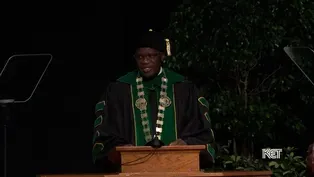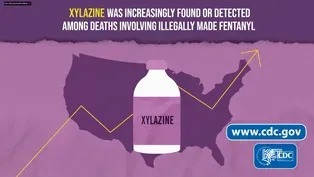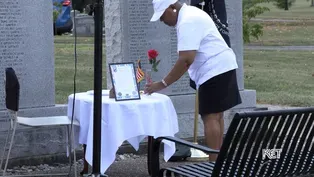
Kentucky's Housing Crisis
Clip: Season 3 Episode 81 | 1m 58sVideo has Closed Captions
Members of Kentucky's home building and rental industry discuss the housing shortage with lawmakers.
Representatives from the home building and rental industry tell Kentucky lawmakers that if the state wants to see more homes being built, state and local officials need to cut some red tape.

Kentucky's Housing Crisis
Clip: Season 3 Episode 81 | 1m 58sVideo has Closed Captions
Representatives from the home building and rental industry tell Kentucky lawmakers that if the state wants to see more homes being built, state and local officials need to cut some red tape.
How to Watch Kentucky Edition
Kentucky Edition is available to stream on pbs.org and the free PBS App, available on iPhone, Apple TV, Android TV, Android smartphones, Amazon Fire TV, Amazon Fire Tablet, Roku, Samsung Smart TV, and Vizio.
Providing Support for PBS.org
Learn Moreabout PBS online sponsorshipRepresentatives from the homebuilding and rental industry spoke to Kentucky lawmakers today.
They say if Kentucky wants more housing, state and local officials should cut some red tape.
Are we talking about wiping out all regulations on the books?
Of course not.
But to the extent that Kentucky has rules on the books that are more stringent than federal or more stringent than surrounding states, do we have a reason for that or is that just something that's been on the books for years and we could potentially change it?
It is estimated that 25% of a home's cost comes from regulations, of course, that permit fees.
That's building codes, electrical codes, that's inspections that studies engineering, all of those things that have to be done in order to create a piece of land to develop.
Reduce parking requirements.
Parking requirements are one of the biggest costs for development.
The Urban Land Institute found that parking minimums were the number one barrier in building affordable housing.
Growing transportation alternatives and evolving residential preferences are good reasons to review and amend parking requirements that may not meet current needs.
Reduce lot size.
These codes mandate that each home include a certain amount of land regardless of the owner's preference.
Research has shown that such rules raise home prices by forcing buyers to purchase large, more expensive parcels and reduce the barrier number of homes that can be built on that parcel.
When you allow for townhomes and small lot homes.
Kentucky could use another 200,000 houses and apartments, according to the Kentucky Housing Corporation.
It estimates that shortage will grow to 287,000 in the next five years.
A legislative committee looking at the shortage will release findings and recommendations by December.
Video has Closed Captions
Kentucky's only public historically black college is under new leadership. (3m 15s)
Video has Closed Captions
Lexington sees a spike in non-fatal overdoses. (3m 48s)
Record-breaking Festival In Kentucky
Video has Closed Captions
Record-breaking crowds turned out for Kentucky's Bourbon & Beyond festival. (3m 26s)
This Week in Kentucky History (9/23/2024)
Video has Closed Captions
Toby Gibbs has a look at events that happened This Week in Kentucky History. (1m 40s)
Providing Support for PBS.org
Learn Moreabout PBS online sponsorship















